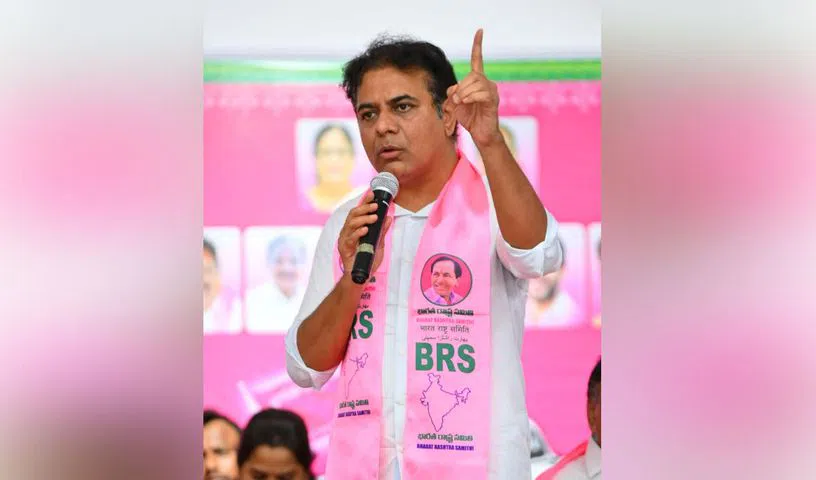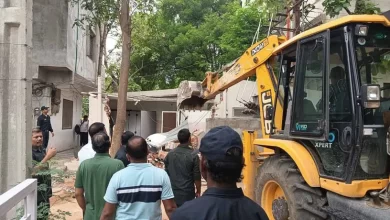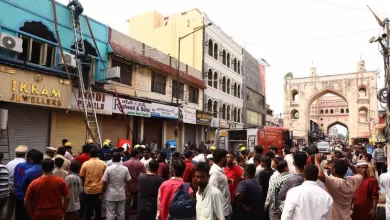KTR condemns house arrest of BRS leaders over Adani-Ambuja cement factory’s public hearing
He demanded their immediate release, accusing the Congress government of using authoritarian tactics to suppress dissent and prevent the BRS leaders from attending a crucial public hearing on environmental impact assessment
Hyderabad: BRS working president KT Rama Rao strongly condemned the house arrests and detentions of BRS leaders and environmental activists protesting against the Adani-Ambuja cement factory in Ramannapet, ahead of the public hearing being held on Wednesday.
He demanded their immediate release, accusing the Congress government of using authoritarian tactics to suppress dissent and prevent the BRS leaders from attending a crucial public hearing on environmental impact assessment.
Rama Rao was outraged over the detention of BRS Nalgonda district president and former MLA Ravindra Kumar Naik, along with former MLAs Bhupal Reddy, Gadari Kishore Kumar, and Chirumurthi Lingaiah, who were barred by the police from participating in the public hearing. He termed the arrests as evidence of the repressive policies of the Congress government.
The BRS working president said early arrests and intimidation of civil rights activists, people’s organisations leaders and environmentalists, arguing that the integrity of the public hearing referendum was compromised by these oppressive measures.
“There is no point in conducting an environmental impact assessment under such restrictive conditions,” he remarked, adding that it only highlighted the government’s intent to stifle opposition.
Rama Rao accused the Congress government of acting under the orders of businessman Gautam Adani, referring to it as evidence to anarchic rule of Chief Minister Revanth Reddy.
He challenged the Congress government to conduct the public hearing without such restrictions. He warned that the people, especially the affected farmers and communities, would write the political death warrant of the Congress, if the government continued to push through the cement factory project using dictatorial policies.








